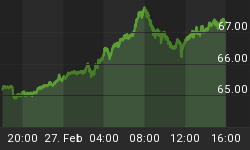In one of the biggest ticket items that could move markets this week, Trump announced Sunday that a U.S. team had arrived in North Korea, only days after abruptly withdrawing from the planned June 12 face-to-face with Kim Jong Un.
While U.S. markets are closed for Memorial Day, Asian markets were up Monday on signs—once again—that there may be a resolution for tensions with the rogue nation.
“Our United States team has arrived in North Korea to make arrangements for the Summit between King Jong Un and myself, Trump tweeted. "I truly believe North Korea has brilliant potential and will be a great economic and financial Nation one day. Kim Jong Un agrees with me on this. It will happen!"
Kim Jong Un followed suit on Sunday, expressing "his fixed will" on meeting Trump as planned, according to North Korea’s KCNA state news agency.
The news follows another tension-easer earlier that same day, when South Korean President Moon Jae-in confirmed a surprise meeting on Saturday with Kim Jong Un, where the two agreed on the necessity of the June 12 summit.
Also on Saturday, Trump told reporters the summit plans were “moving along very nicely. We’re looking at June 12 in Singapore. That hasn’t changed. […] so we’ll see what happens.”
According to Reuters, U.S. S&P500 mini futures rose 0.4 percent in Asian trade on Monday, but illiquidity is expected to render trading slow due to market-closing holidays in both the U.S. and the UK.
South Korea’s KOSPI also rose 0.7 percent, while MSCI’s broadest index of Asia-Pacific shares outside Japan rose 0.2 percent, Japan’s Nikkei traded flat, and the broader Topix dipped 0.2 percent, Reuters reported.
After taking a hit on Thursday, markets were already settling down by Friday, when Trump seemed to suggest that the summit he cancelled could still take place as scheduled.
Some talking heads have viewed this back-and-forth as a sign that Washington has zero diplomatic strategy and is losing credibility, while others view this as a purposeful negotiating tactic on the part of Trump.
CNBC quoted Seoul-based professor Jasper Kim describing Trump’s maneuver as “a pre-negotiation walkout and what it does is stress test the other side in terms of who wants what more”.
Stephen Innes, head of Asian trading at OANDA, told AP on Trump and Kim: "We've been down this road many times before, this is a path well worn, and realistically to start chasing risk based on this summit coming back on again could be could be a little bit misguided in the sense we've still got a long way to go."
The markets are likely to respond in a volatile manner on this fear-index issue between now and the planned summit, largely because the key sticking point will be diverse interpretations of what “denuclearization” actually means. Related: The Dark Side Of Trump's Tax Bonanza: $1 Trillion In Debt
While denuclearization is Washington’s demand on North Korea, expectations on both sides will be challenging to align.
But the elephant in this nuclear room is China, and while all eyes are on Washington, Pyongyang and Seoul, Beijing—some argue—has much to gain from keeping this cat-and-mouse game alive.
As the Washington Times notes, citing sources close to the White House, as North Korea’s closest ally and only major trade partner, China will be a key factor in whether this summit actually happens, and whether anything significant comes of it.
With that in mind, many are wondering whether Beijing is wrestling concessions from Trump by dangling the North Korea threat in front of him. Indeed, there are questions as to whether Trump’s sudden and controversial reversal of severe sanctions on Chinese telecommunications giant ZTE was one of those concessions.
Former Treasury Department sanctions analyst Anthony Ruggiero told the Washington Times, “The danger here for the Trump administration is China. The key … is China and making clear to the leaders in Beijing that if they side with North Korea, there is going to be some pain against their banks and their interests.”
By Fred Dunkley for Safehaven.com
More Top Reads From Safehaven.com:
















